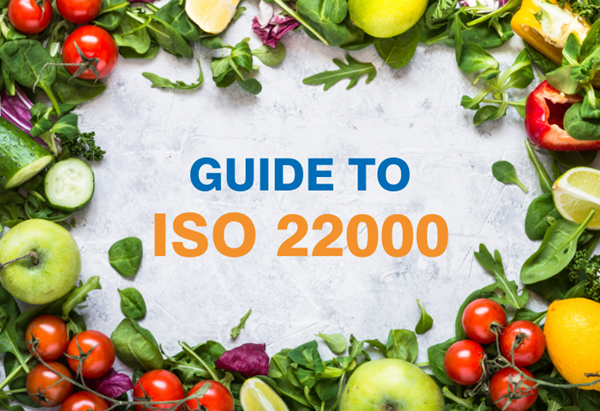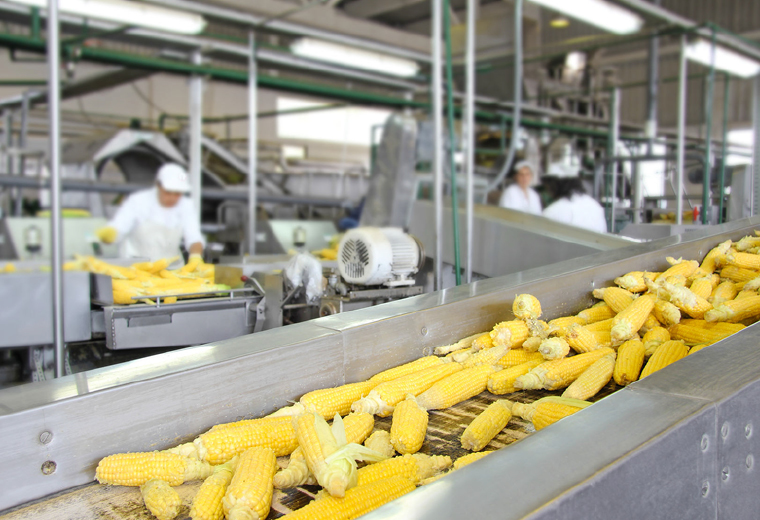FSSC 22000: Food Safety Management Systems
What is FSSC 22000?
Food Safety System Certification (FSSC) 22000 is an internationally accepted certification scheme based on a combination of ISO 22000 sector specific PRP and FSSC additional requirements. FSSC 22000 has been developed in respond to customer demands for a recognizable standard against which a food safety management system can be audited and certified.
FSSC 22000 was given Global Recognition by the GFSI (Global Food Safety Initiative), as well as other food safety schemes such as BRC or IFS. The certification scheme is owned by the Foundation for Food Safety Certification.
FSSC 22000 has been developed for the certification of food safety systems, which guarantee the safety of products during primary production of animal products, manufacture of perishable animal and/or vegetable products, products with a long shelf life and (other) food ingredients like additives, vitamins and bio-cultures, animal food and feed production and food packaging manufacturing, and recently included catering, retail/wholesale and transport and storage services.
Helps you with
- GFSI recognition
- Food safety
- International food standard
- Food fraud
- Food defense
- HACCP
- Food risks
- Food contingency plan
- Food traceability
Benefits of Food Safety Certification
Cuts investigation time to a minimum
The management system helps you to reduce food safety breach investigation time.
Customer satisfaction
Deliver products that consistently meet customer requirements and a service that is dependable and can be relied on.
Global recognition as a reputable supplier
Certification is recognized internationally and accepted throughout industry supply chains, setting industry benchmarks for sourcing suppliers.
Proven business credentials
Independent verification against a globally recognized industry standard speaks volumes.
Legal compliance
Understand how statutory and regulatory requirements impact your organization and its customers.
Ability to win more business
Procurement specifications often require certification as a condition to supply, so certification opens doors.
Respond to situations
Ideal for responding to situations that can compromise the food safety of both products and production processes.
Help customers to find your organization
The scope is now broader that just for Food Manufacturing as other Technical Specifications have been developed over the years, e.g. ISO/TS 22001-2 Catering, ISO/TS 22002-4 Food Packaging, ISO/TS 22002-6 Animal feed, ISO/TS 22002-5 Transport and storage, etc.
From April 1st 2021 all food safety management systems of certified organizations or new applicants are mandated to be audited against the latest version of the scheme, Version 5.1 published by the FSSC Foundation in November 2020.
Once registered, you accept your organization to be listed in the Foundations database, which share a list of certified organizations and display information with regard to the certification status of your company. The website can be found at www.FSSC22000.com. This database is regularly used by customers looking to validate an organization’s certification and it can be shared with governmental authorities when appropriate.
By accepting the Foundation requirements, you also allow auditors from the Foundation to witness NQA auditors during any of the FSSC 22000 audits.
How can we help?
With a wealth of experience providing accredited management systems certifications, NQA is ideally placed to partner with you to meet customer requirements and exceed industry expectations.
Technical committees and industry relationships. NQA is highly involved in a wide variety of industry committees and standards writing teams, helping us to maintain a keen awareness of changes within this industry.
Knowledge transfer supporting our customer’s organizational strategy. NQA is committed to ensuring customer awareness regarding changes in industry strategy, regulations, and standard requirements that may impact your management system approach.
FSSC specific requirements
FSSC 22000 Logo – Certified organizations are entitled to use the FSSC 22000 logo. It may be used on the organization’s printed matter, website and other promotional material subject to the following design specification.

Use of logo in black and white is permitted when all other text and imagines are in black and white. The FSSC logo is not allowed to be used on a product, its labelling, its packaging, or in any other manner that implies FSSC 22000 approves a product, process or service.
NC grading – There are three possible grading levels when raising a NC against FSSC: minor, major and critical nonconformities. The specific timeframe for handling NC will be specified in the audit report and provided to the organization on each visit (if required).
A minor nonconformity will be issued when the finding does not affect the capability of the management system to achieve the intended results. Major NC will be issued when the finding affects the capability of the management system to achieve the intended results, and Critical NC is issued when food safety is directly impacted during the audit or when legality and/or certification integrity are at stake.
Termination of certification contract – when critical nonconformities are not effectively solved by a certified organization within the specified timeframe provided by NQA, the FSSC 22000 certificate will be immediately withdrawn. Additionally, failure to achieve the deadline specified for a Major NC will result in raising a Critical NC. A Major NC could also be raised when an action plan has not been carried out within the timeframe specified when raising a minor nonconformity.
Steps to Certification
-
Step 1
Complete a Quote Request Form so that we can understand your company and requirements. You can do this by completing either the online quick quote or the online formal quote request form. We will use this information to accurately define your scope of assessment and provide you with a proposal for certification.
-
Step 2
Once you’ve agreed your proposal, we will contact you to book your assessment with an NQA Assessor. This assessment consists of two mandatory visits that form the Initial Certification Audit. Please note that you must be able to demonstrate that your management system has been fully operational for a minimum of three months and has been subject to a management review and full cycle of internal audits.
-
Step 3
Following a successful two stage audit, a certification decision is made and if positive, then certification to the required standard is issued by NQA. You will receive both a hard and soft copy of the certificate. Certification is valid for three years and is maintained through a programme of annual surveillance audits and a three yearly recertification audit.



